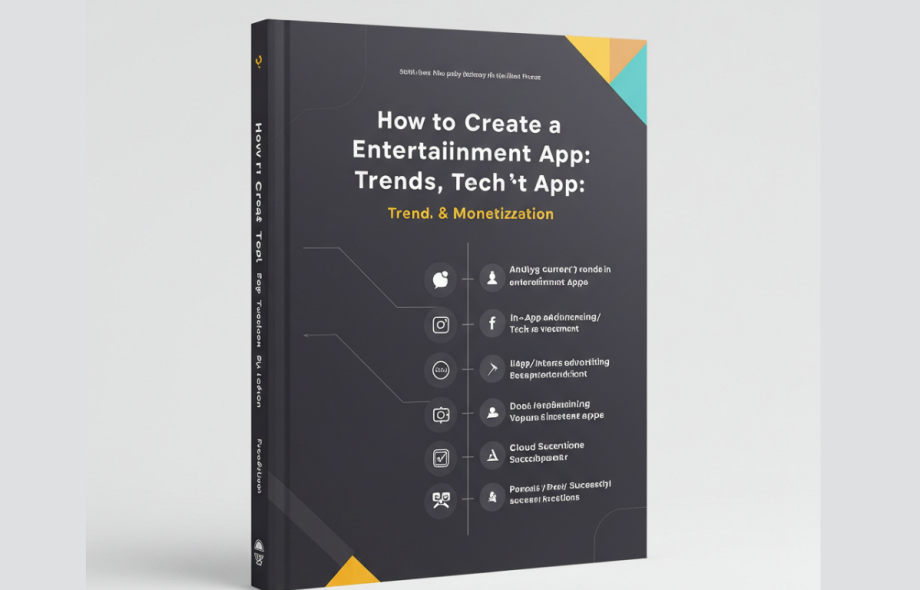Entertainment apps have taken the digital world by storm. From short video platforms to immersive gaming experiences, these apps captivate millions daily. But what makes an entertainment app go viral? The answer lies in understanding user behavior, leveraging cutting-edge technology, and implementing strategic monetization. Whether you’re a startup or a mobile application development company, this guide will help you create an entertainment app that stands out and scales fast.
1. Understanding the Psychology of Virality
The key to virality is tapping into users’ emotions. Entertainment apps that evoke excitement, humor, or nostalgia tend to be shared more. For instance, platforms like TikTok thrive because they encourage user-generated content that resonates with a broad audience.
Moreover, people love to share experiences that give them social validation. Features like leaderboards, challenges, and interactive elements encourage users to spread the word. If your app can create a “fear of missing out” (FOMO), it has the potential to gain rapid traction.
2. Identifying Current Trends in Entertainment Apps
To stay relevant, developers must keep an eye on emerging trends. Some of the hottest trends in entertainment apps include:
- Short-Form Videos: Apps like TikTok and Instagram Reels dominate with bite-sized, engaging content.
- AI-Powered Personalization: AI-driven recommendations increase user retention by curating content based on individual preferences.
- Augmented Reality (AR): Features like Snapchat filters and interactive AR games boost engagement.
- Live Streaming: Real-time content fosters a sense of community and authenticity.
By integrating these trends, your entertainment app can align with modern user expectations and drive higher engagement.
3. Choosing the Right Tech Stack for Seamless Performance
A robust tech stack is crucial for smooth performance and scalability. Consider these components:
- Front-End Development: React Native, Swift, Kotlin for a seamless user experience.
- Back-End Development: Node.js, Firebase, or AWS for real-time data processing.
- Database Management: MongoDB, PostgreSQL, or Firebase for efficient storage.
- AI & Machine Learning: TensorFlow, OpenAI APIs for personalized recommendations.
Choosing the right technology ensures an app that is not only fast but also capable of handling high traffic loads.
4. Designing an Addictive User Experience (UX)
A great entertainment app must be intuitive and visually appealing. Focus on:
- Minimalist UI: Keep the design clutter-free to improve navigation.
- Micro-Interactions: Small animations enhance the user experience.
- Dark Mode: Aesthetic appeal and user preference support this feature.
- Gamification Elements: Reward systems, badges, and achievements enhance user engagement.
A well-designed UX keeps users hooked and encourages repeat visits.
5. Leveraging AI and Personalization for Retention
Artificial Intelligence plays a massive role in user retention. By analyzing user behavior, AI can suggest content, improve recommendations, and even predict trends. Entertainment apps that use AI to personalize experiences see significantly higher engagement rates.
For instance, platforms like Netflix and Spotify use AI to curate playlists and recommendations tailored to individual users. Implementing similar strategies in your app can keep users engaged and coming back for more.
6. Marketing Strategies to Make Your App Go Viral
A well-executed marketing plan can catapult your entertainment app to virality. Here’s how:
- Influencer Collaborations: Partner with social media influencers to promote your app.
- Referral Programs: Offer incentives for users who invite friends.
- Hashtag Challenges: Encourage users to create and share content with a unique hashtag.
- Social Media Integration: Make sharing content seamless with built-in social media buttons.
By implementing these strategies, you can generate organic traction and scale user adoption quickly.
7. Monetization Models for Maximum Revenue
Monetization is a critical aspect of any entertainment app. Here are the most effective strategies:
- Freemium Model: Offer basic features for free and charge for premium content.
- In-App Purchases: Sell virtual goods, exclusive content, or extra features.
- Subscription Plans: Monthly or yearly plans for ad-free or premium experiences.
- Advertising: Leverage video ads, banner ads, and native ads to generate revenue.
A well-thought-out monetization plan ensures long-term profitability while keeping users engaged.
8. Ensuring Security and Scalability
Security is paramount in entertainment apps, especially those dealing with user-generated content. Implementing:
- Data Encryption: Protect user data from breaches.
- Two-Factor Authentication (2FA): Adds an extra layer of security.
- Content Moderation: AI-driven moderation to filter inappropriate content.
- Scalable Cloud Solutions: AWS, Google Cloud, or Azure for seamless scaling.
By prioritizing security, you build trust and encourage long-term user retention.
9. Future-Proofing Your Entertainment App
The digital landscape is always evolving. To keep your app relevant:
- Regular Updates: Introduce new features based on user feedback.
- AI & Blockchain Integration: AI for personalization, blockchain development for secure transactions.
- Expanding to the Metaverse: Consider AR/VR features for immersive experiences.
By continuously innovating, your entertainment app can maintain its virality and user engagement.
Conclusion
Developing a viral entertainment app requires a blend of psychology, technology, and marketing strategies. By understanding trends, leveraging AI, and optimizing monetization, your mobile application development company can create an app that captures millions of users worldwide. Focus on innovation, user experience, and scalability to ensure your entertainment app thrives in the ever-competitive market.
 :
https://www.pinterest.com/cubixglobal/
:
https://www.pinterest.com/cubixglobal/












